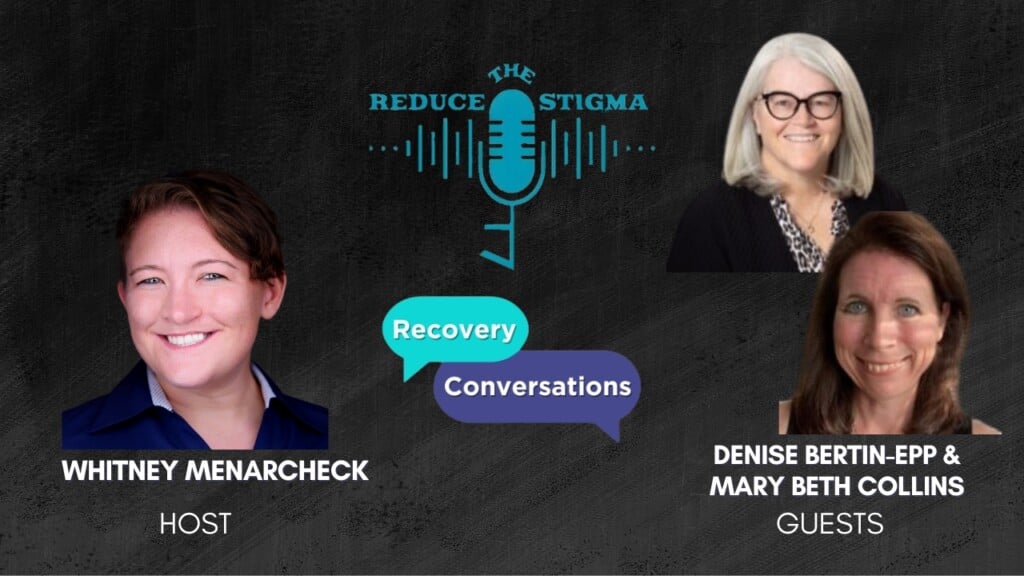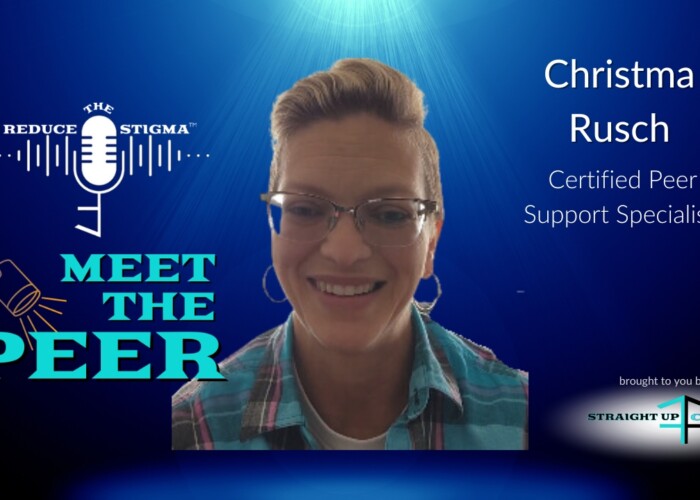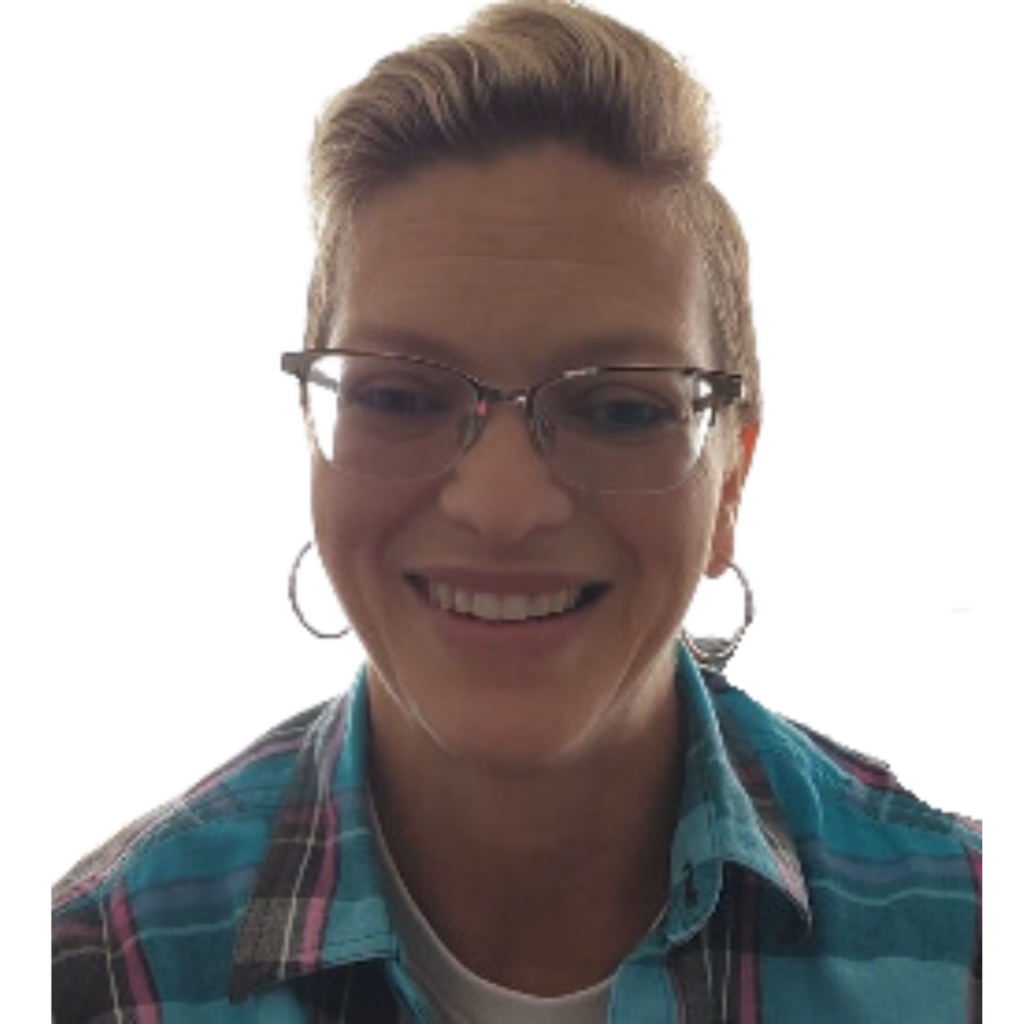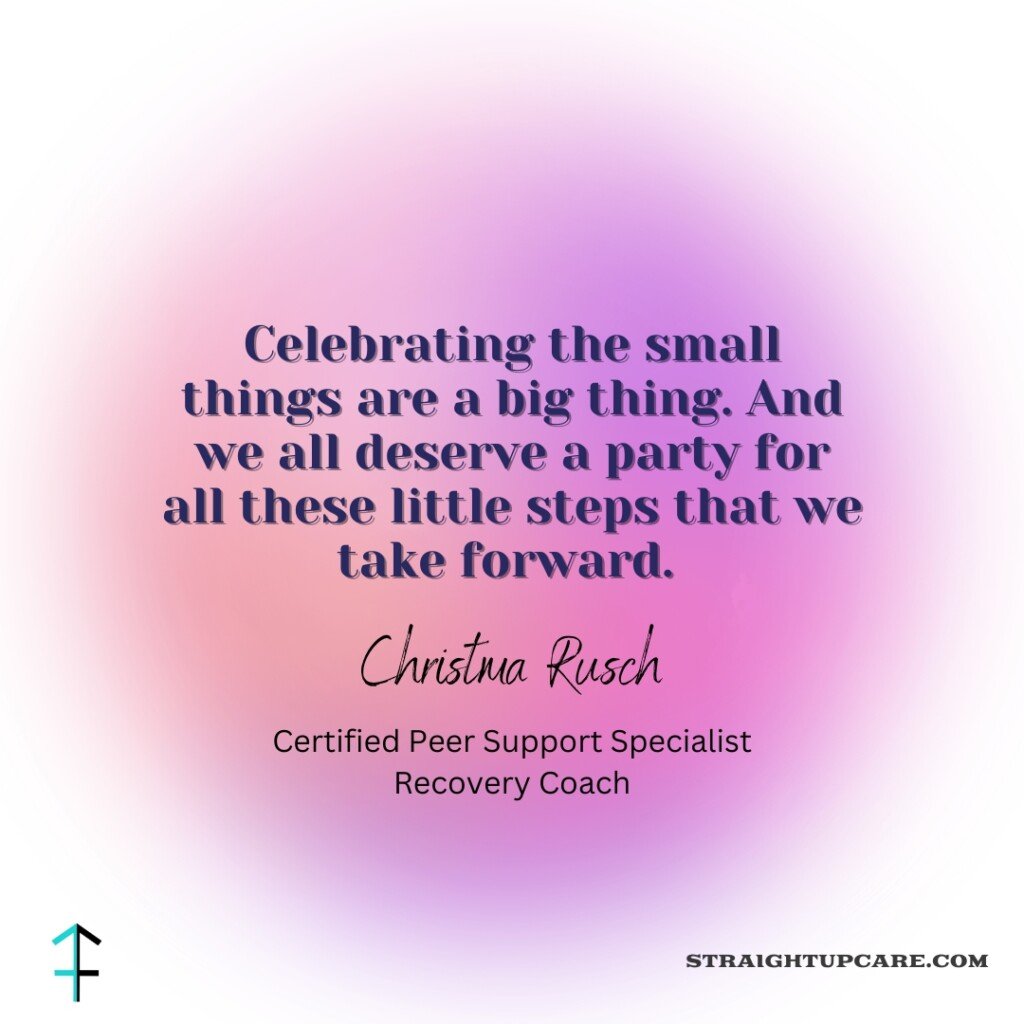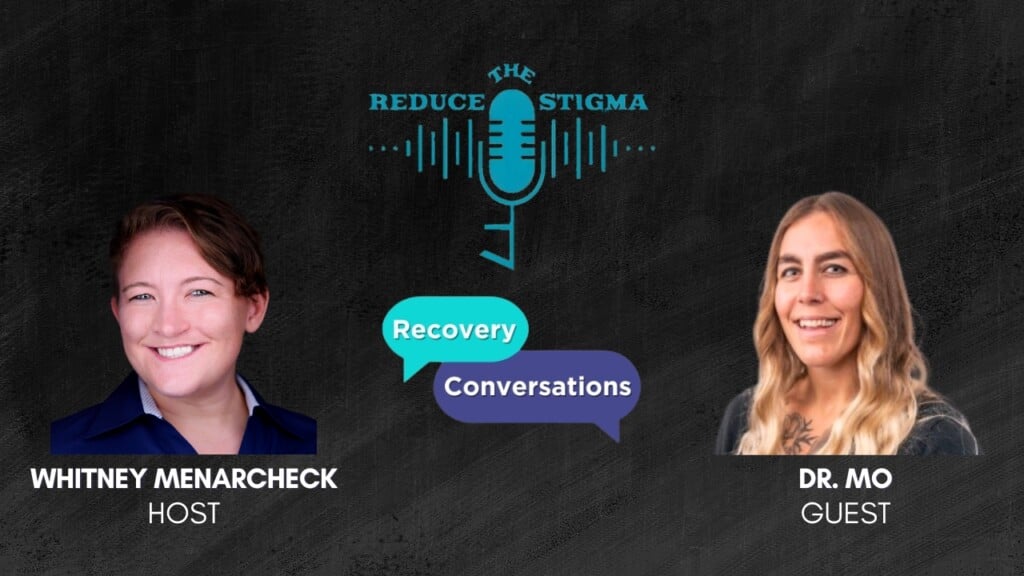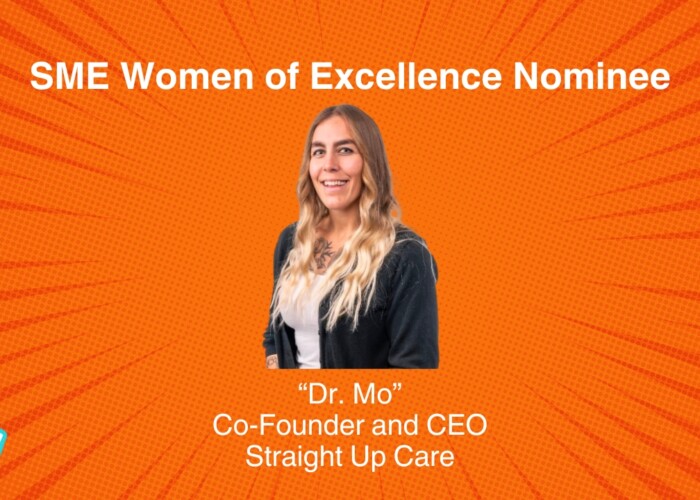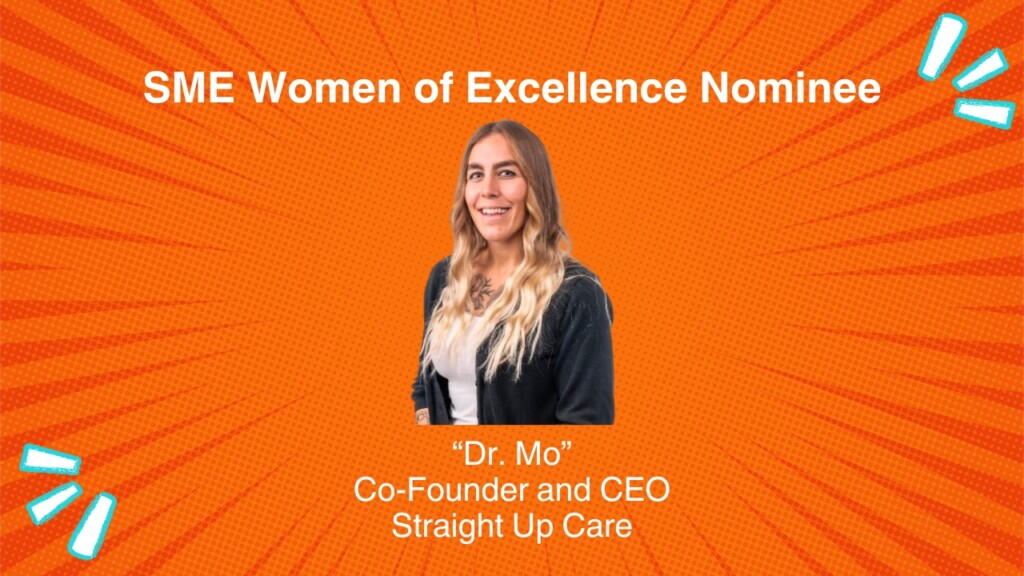Roger Crouell, Certified Peer Specialist, Discusses Addiction Recovery Journey, Peer Support, and Self-Care
In this episode of Meet the Peer, Whitney Menarcheck interviews Roger Crouell, a Certified Peer Specialist from Virginia. Roger opens up about his personal journey, including his experience with addiction, incarceration, and his path to recovery.
Roger emphasizes the crucial role of peer support and the impact of Certified Peer Specialists in helping individuals navigate difficult times. He also sheds light on the significance of financial management in the recovery process.
Moreover, Roger addresses the stigma surrounding mental health and addiction, particularly in the black community. He encourages self-love and self-care, offering words of encouragement for those who are struggling.
Tune in to this powerful episode and learn more about the importance of peer support, financial management, and self-care in addiction recovery.
Full transcript below.
Learn more about Roger: https://straightupcare.com/members/rogerc/
Schedule a peer support appointment with Roger: https://straightupcare.org/consultant-profile/465
How to Watch
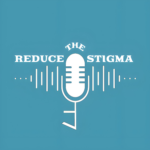
Watch on any device on ReduceTheStigma.com
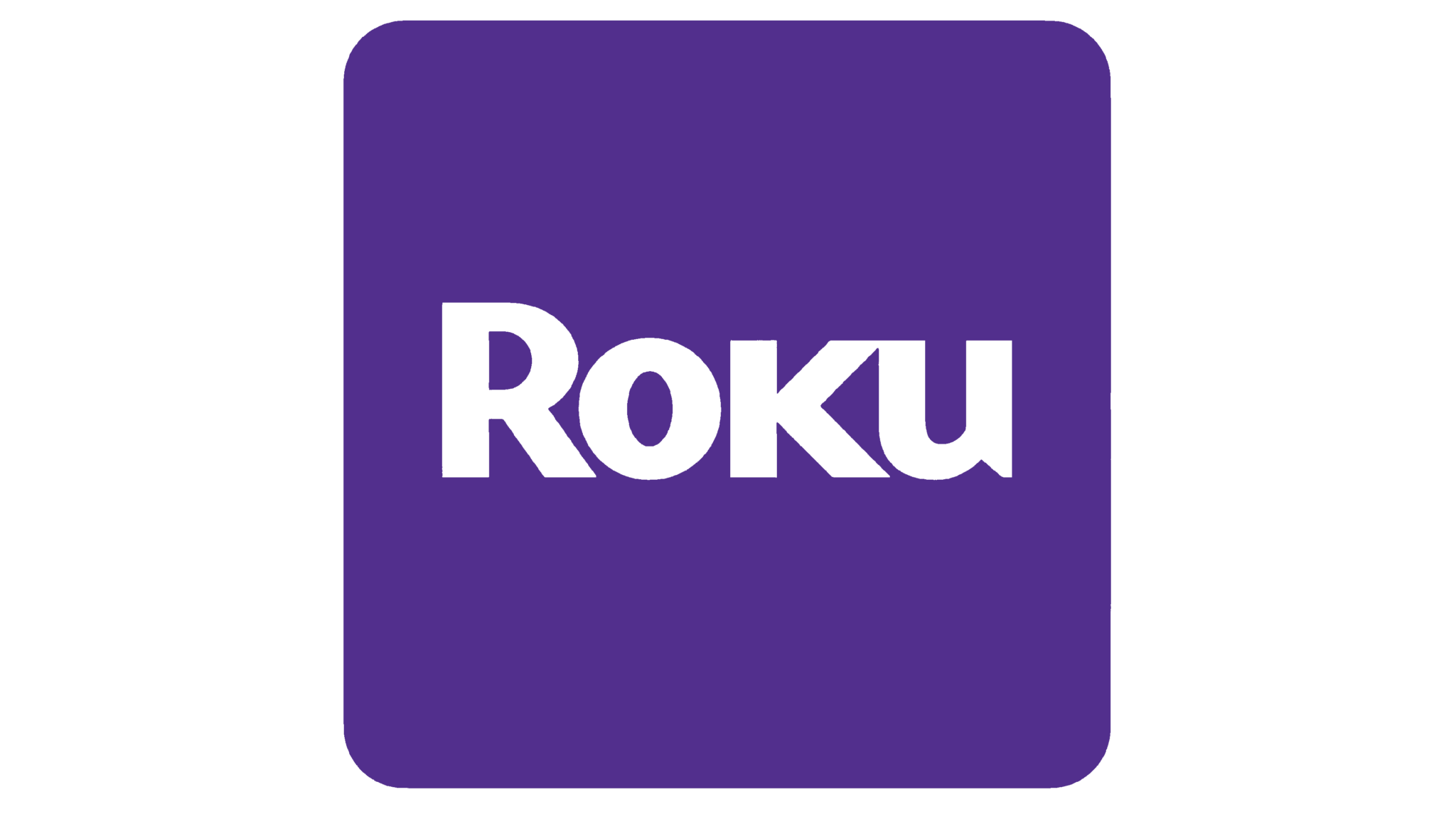
Install and Watch all Episodes on Reduce the Stigma RokuTV Channel

Install and Watch all Episodes on Reduce the Stigma Amazon Fire TV Channel
How to Listen
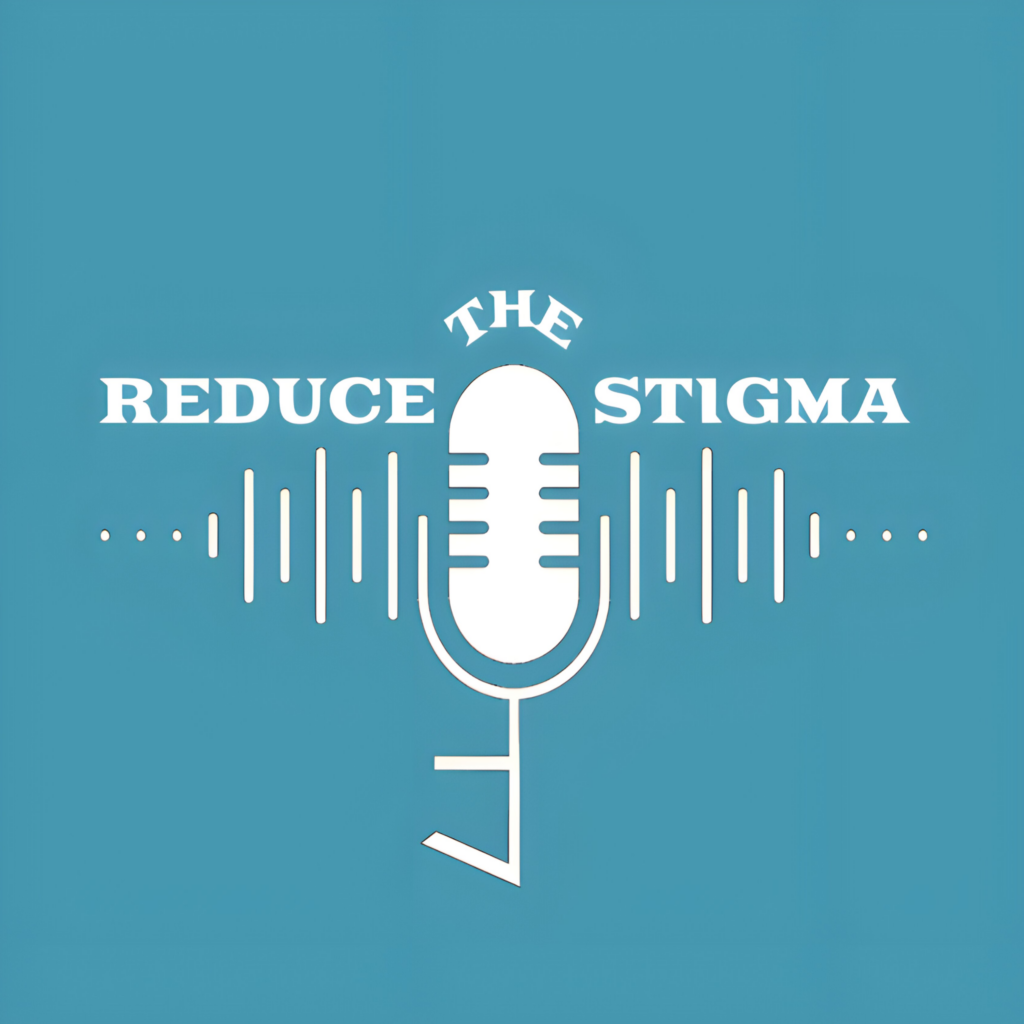
Our Podcast Website on Podops!
Listen on Apple Podcasts!

Listen on Spotify!

Listen on iHeart Radio!

Listen on YouTube Podcasts!
Follow Straight Up Care
Transcript
Whitney (00:47)
Hello and welcome to Meet the Peer, a special series where we shine the spotlight on peer specialists.
I’m your host, Whitney Menarche, and on this episode of Meet the Peer, we have Roger Kroll, Jr., a certified peer support specialist in North Carolina. Welcome, Roger.
Roger Crouell (01:03)
Hi, how you doing, Whitney? Thanks for having me.
Whitney (01:06)
I’m good. Thank you for joining me. I’m excited to learn more about you and for others to be able to hear your story. So if we can just start right there with your story, your journey and lived experience.
Roger Crouell (01:22)
journey starts back it dates back in my teenage years where it was more than following the lady you know I mean come from low-income family and all the older guys as she was growing up you seen all the older guy it was back then you was seeing drugs and alcohol it was cool looking to do those things nobody told you how to drink responsibly and all that but and as time rolls on
My drinking I started probably like 13 years old and it was just the more to fit in to fit in with it Cuz I didn’t like being home. My father was the best father in the world. I see my mom Work her fingers to the moon to support six kids So there you already had some deep in room that I didn’t want to be home So you’re looking for love outside of the house trying to find so you start I start hanging with older guys
and try to so-called prove myself to them, I did the things that you shouldn’t be doing at 13 years old. And as time goes on, drinking and everything’s picked up. You know, you start out with marijuana and they end up later in life with cocaine. So, but in my time, that time, my demon was alcohol. It was the root of my whole demise of everything. And as my journey going, I was an athlete in school and hid some things fairly well.
You know, you start smoking cigarettes and all that. And it’s again, just social. I never had a problem because the popularity came. You still didn’t know what to do with yourself because I wasn’t understanding me. I was locked within myself. I ain’t a angry black kid. A black male kid. And. And it was just one of the things in. Round.
After high school, you know, I was kind of lost. I was in between. I got a scholarship to pay ball at Craven Community College. I didn’t take the SAT, so I had to start out on a JuCo level. I was pretty decent in basketball.
and end up dropping out of it.
and then transformation to going to Liberty City State. What happened, Crack Hold Cain was introduced to the community. And instead of going transferring, I hung around and tried to make money, per se.
and things went horribly wrong. There was some money came up short, they said, and the guys came looking for me in there. And there was a shoot, there was a gunplay.
in so many words, I end up shooting someone, two of them. End up serving, getting sentenced to 15 years in prison, which would later cut to seven and a half years. Once I got out, this was 1993, 1998 I was released. And would not finish in college and all that stuff, I was still kind of lost in the world.
Whitney (04:45)
still very young.
Roger Crouell (04:47)
Yes, I was saying but I’m missing most of my 20s that life that you should be enjoying yourself and figuring out yourself I was I was lost so after returning back to society, I Didn’t know still it was still anger I Would say it was still and drinking started back drinking again after all that time Did you was sober for five years nine months? So now you get back out you go fall in the same groove
that vortex after you don’t put promise yourself in there I’m gonna do right you cuz your whole thing back in is to do right you know is this that prison promise that I see everybody go through so end up going out 98 1998 I get my first DWI
So you rebounded that you still don’t recognize you have a drinking problem But you’re going to work you making excuses I was starting, you know, like most Alcoholics you start making excuses for you said oh I go to work. I pay my bills. I do this and I do that Not knowing you don’t face the face. You’re not facing them demons. That’s within you
2001, I get another DWI.
I end up with 3, 2004 I get another one.
Slices and spin it in different
Not knowing how valuable that was.
Yeah, but gracious today fast for today. I got my license all that stuff back now because I think I’m like But then you go back. I try to run for my promise. So I moved out of state Trying to say okay if I leave this situation and go somewhere else Things will get better Not knowing back then you didn’t know you carry you wherever you go And whatever’s in your heart you would still feed
Whitney (06:41)
Right.
Roger Crouell (06:45)
It’s like the tale of the two wolves, you know, one of the other the golden, but whatever you feed this one, you tend to go to. So it was still drinking and it still was cost me problem. I just refused to say drinking was the problem. I like the all the bad decisions and everything else.
So you get there, you know, I was married then that’s my ex-wife Ended up did it didn’t work because my intentions wasn’t good when you went there It was still you know to get away. I did care for but But the drinking still continued
It’s almost like you heard it on the inside you crying and you want somebody to hear you but you scared to let it out For the fear being oh you weak you saw and that’s in the black community That’s a lot of black male goes through it Then you go to other cultures and it is because males for to be a strong dominant figure Show no weakness no signs men don’t cry
What happened when all this pressure real up in you?
and drinking was my outlet.
So, and you fast forward to take the drinking carrot on up to now to about five years ago.
with bad decision, poor decision making skills, and more trouble. And I finally got it right. Finally something did hit me. My current wife now, married of 12 years, and she kept telling me, go back to school. You’re better than that. I see so much better than you. You don’t see in yourself. And I thank God for her every day. Cause she’s put up with so much. She left at a period of time to get me to realize, look, I can’t stay in this.
Refused to be treated like this and you better than you don’t see yourself. I’m not gonna see him drown which
So I went back to LCC. I ended up losing everything. She left. We was in Greensboro, North Carolina, and lost it all.
Ain’t going up doing a year in jail for Mr. Min a chick frog. I Was homeless, you know me I had to eat so Not making an excuse for it. It was wrong But I end up getting caught for it and they said okay, you’re mr. Min time Like I said when I got out when I got released I had nowhere to go And I’m from Trenton, North Carolina so one of my cousins he came and he found me and he’s
He said, I can’t have you living in the streets, but I don’t have space for you home. I got a wife and kids too and all that. But what I can do, you gonna have to go back home. I know you don’t want to, there’s nothing there, but you gotta go back. So some clicked in and I moved back. But I had a goal in mind at this point. I had something I had to change.
something had to change. So I made up my mind, it’s been rolled back in college. I wanted to go to be a chef. Believe it or not, I think I can cook. Everybody seemed to enjoy it. But something kept nagging me and pulling me the other way. He said, nah, human service technology, go be a counselor.
Whitney (10:06)
Wow.
Roger Crouell (10:08)
So in there in when you study when I got in studying you nervous I was 48 at the time So you 48 you know going back to school so you didn’t miss a lot you’ve been out of been removed from education for this period of time So it was scary thing but I did it. I had so I had a goal. I had something to do I got to get outside. I got to leave this pass along. I got to keep running from things face your problems and go
So after that, you know, and did well, but all the study and the case notes and the demonstrations that we did role playing and all this, and I can see myself in so many of these things.
so many. And it was unbelievable. So after I graduated, my wife threw a party off, birthday slash graduation party. It was around May. My birthday is like May 26th. So Memorial Day, you know, graduated at the top of me.
Some just in the kingdom see all this time I know we don’t we don’t talk about how about we say how power but god, you know me It’s all of a sudden you begging them all the time. Please release me The demons the things that i’m fighting And people tell me you’re great. You know You just don’t see yourself Once you remove you’ll get yourself out of the way watch while god will put in your life and do for your life. So At the birthday party I took one last drink and that’s been
Whitney (11:42)
So the moment you graduated was the moment that you also moved into your recovery, it sounds like. That’s incredible. And so you’re a counselor and a peer specialist.
Roger Crouell (11:49)
Yes.
Yes.
Whitney (11:58)
Obviously, those two are very similar. I mean, they’re both about helping people through difficult times. Peer specialist has the perspective of that lived experience. What led you, once you achieve the counseling program or completed it, what led you to also want to go and become a certified peer specialist?
Roger Crouell (12:19)
Go back and get the ones that’s lost. Like I said, they’re similarities, but we don’t, we kind of walk them through it. You know they’re struggling, they don’t, they’re not at that point they really want to give anything up. But you try to, you just walk with them and let them know, hey, I’ve been there before. And you can kind of be an example to them. After they figure out, you know, I mean, you get real that rapport with them and they start asking the question, how did you do it?
Right. How do you do it? So that’s why I kind of went back for though, you know me this more hands-on, you know me Directly you can see they pain you can feel a pain you been there before you know, they cries Yeah, you know they cry so yeah, that’s what makes them into
Whitney (13:03)
You know the pain, right?
And you know, I think there’s something to be said also about the, you know, in counseling, there’s very
try very hard not to let the power differential play a role, but it does. You’re going to this professional, you know, and that can result in walls going up, understandably, whereas with a peer specialist, it’s equal footing, right? It’s less of a fear of judge- I imagine less of a fear of judgment, more of a- you, like you said, you get it, you know the pain. And-
Roger Crouell (13:22)
You’re done.
You know, they struggle you know what they trying to do because some people they won’t they have they crying out for you They just don’t know how to ask for And we know you didn’t like to say it’s no judges. No judge zone. You just let me know I’ve been there I’ve been there. I know what you’re going through The similar is not the same journey that I have walked So but to keep you from going back in the fire. Hey Have to look at it this way or
Try doing it this way. And things might look up, you know?
Whitney (14:20)
Absolutely. And, you know, there’s been a shift. There’s much more support and recognition of the role of peer specialists, someone with that lived experience helping along the way. What would you say is one of the reasons why peer support is so important?
Roger Crouell (14:38)
Good question. It’s much needed. Now that you look every time you turn on TV and you’re in your communities and society with the fentanyl and the overdoses and…
It’s all over now. It’s in you, it’s everywhere. It’s crying, it’s screaming for help. Somebody please help me. As a community as a whole, and I think that’s why peer support brings more, because it’s more in the community.
It’s more, it’s coming, it’s directly towards them and it’s not, once again, it’s not just Madonna. You can relate to them. You can relate to the alcohol. You can relate to the, adding that, so, you can relate to the painting.
You just want to see him to stop hurting. You just want him to stop hurting. Hey, there’s a way. Come with me. You know what I mean? There’s hope at the end of this.
Whitney (15:36)
And you’ve touched on your alcohol use. You talked about incarceration and returning to the community, which is not easy. And talk about a time when people need support. Are there any other life experiences that you like to help someone when you’re working with them as a peer specialist?
Roger Crouell (15:58)
with debt with everything that’s coming because you know people bloated finances
to open up just to let them know, you know what I mean, there’s better things you can do with your money or invest in, you know, once they see themselves getting on the other side of that. So, yeah.
Whitney (16:15)
I love that. I think that’s a skill that I don’t think it’s taught enough in school. And when someone has an addiction, you know, money isn’t, you’re not planning long term.
Roger Crouell (16:20)
Thank you.
Whitney (16:29)
And so I think that and that financial stability is so important for work. I mean, the finance stress of finances can be the thing that leads someone back to use. And so I think that’s an amazing thing to be able to offer to someone to help them out and support them in learning how to manage their money. So that’s really exciting to hear.
Roger Crouell (16:54)
Yes, it is and I had to come to Tim. I wasn’t really bad with money, but when you just
When you when the spot likes on you and your popliness is you still want that fake love I call it So you blow money you blow more money than you take it in Because it all drinks on me everybody do you know you it’s that big ball of lifestyle and But now that I know if it’s not giving me a roi But that’s one of the things you know me that needed
Whitney (17:22)
Yeah.
Roger Crouell (17:28)
Because we know triggers, sometimes money triggers. You know, they got it in hand, they gotta go blow it. You know, this. So if we get them to that cognitive behavior, but you teach finance, because like I said, nobody taught us in school. We had to learn the hard way. Because I had to, back then, moms didn’t know, dads didn’t know. All I seen was, I can’t pay this bill this month.
have to make payment arrangements. So how can they teach me about finances or anybody around me that’s below the poverty line? They’re all struggling. So they don’t know about, back then it wasn’t a full-on arcade, but invested in some kind of stocks or bonds or CDs. You seen people just sit there, you thought everybody lived the same way till you go outside that box. Then you’re like, oh wow, they have a nice house.
They have man. So nobody touch about your credit and what that score really means to you It’s almost value is your social security number
Whitney (18:35)
Yes, and it can really make or break kind of some times in your life. And there are unfortunately a lot of programs out there that are predatory and no people are in.
Roger Crouell (18:36)
Yeah.
Whitney (18:53)
tough spot and so they’ll you know offer you know payday loans and things like that where someone just gets stuck in a loop of not being able to get ahead.
Roger Crouell (19:05)
It keeps you in the vortex. So once you know to keep your uses up on a 30% You know and stuff like that is nobody teach you that you know when you got a brand new car has got this lemon on it, let’s go use it and then you see your rate you see your store falling you see this going up and But you manage them whether they say oh, we got somebody that know how to do this
Whitney (19:25)
Yeah, that’s such an important life skill.
Roger Crouell (19:30)
It is.
Whitney (19:32)
And so one of the things that we always ask peers is, you know, there’s a lot of stigma. You have experienced a lot, I mean, substance use, incarceration, that’s a lot. There’s a lot of stigma there. What would you like to say? If you could say one thing to challenge stigma that can be in the broadest sense or a specific type of stigma, what would you like to say?
Roger Crouell (20:01)
Now.
Being a black male in America, that’s the stigma. That’s the stigma within itself. And I can go on and on about that, but that’s challenging for us.
Yes, you want to be a voice, you want to be.
But we got to learn as a people, you know, especially black males. We are targeted in some forms, but you don’t want to put a bigger bullseye on your back. So, so for us, that’s, that’s what it is. That’s that stigma. It’s just, we got to get over it. It’s just being black in America, black male in America.
Whitney (20:42)
Right. And if you would be open to sharing a little bit more about that intersectionality of multiple components of your identity or your experiences and how the stigma can add on to one another.
Roger Crouell (21:02)
Because it often, see, we was taught, like in our community, Black, we don’t share. We don’t bond. We don’t do this. We just told you don’t cry. Take it to God.
Well, you know, white kind of point, go see therapist, talk it out, relate. See the different things and do we get treated fairly? I have problem not. We can say this have same education, same thing, everything else. But we kind of notice that it’ll go to that, you know, white kind of part. Other than that, it’s a lot being a black male America. You know, I mean, some people just don’t believe it. They’re like, get over it. That happened a long time ago.
You know, you can’t really feel it till you live in it So, you know outside of looking in and it’s more because if you look at the ratio until The opioid epidemic the crack epidemic wiped out And you know, I’m telling you and it’s almost if you was on conspiracy theory look like it was by design
Cause now your age rate go up, your crime rate go up, your kids is less than 10 or two, your black males, they’re more black males in prison than they is in college. So if you look at the whole overall thing, it’s, yeah.
Whitney (22:31)
And for anyone who is listening and doesn’t know, the laws, the war on drugs that was initiated was…
whether it was outwardly intentional or not, there was a severe discrepancy in how crimes involving possession and such were handled based off of what was typically commonly used by white individuals compared to commonly used by Black individuals. And it led to the incarceration rates just skyrocketing. And so anyone who doesn’t know, I encourage you to educate yourself on that
Roger Crouell (23:05)
Yes.
Whitney (23:15)
that has contributed decades later to why there are still such health disparities. And we can’t overlook that.
Roger Crouell (23:25)
See, you know, Witness, he… Thanks for brought… You know about this. So that’s one of the things is being us. We got to keep up with current affairs and everything else. But when you see that kind of number staggered like that, it makes you think, one day, maybe they have a point here. So, I’m gonna go ahead and get to the next one. I’m gonna go ahead and get to the next one.
Because as you spoke, a Grammocrat versus an ounce of powder. OK, you get a slap on the hand. You get 20 years in prison.
Whitney (23:55)
Right. And then the impact, the generational impact, you know.
Roger Crouell (24:00)
And you see what it has done, yes, you go down. If I come out my door and you see drinking and drugs telling, father’s absent, mom on drugs, you defend the left for yourself, so the next thing you clean through as a male is your dope deal.
You seeing violence, you seeing prostitution, you seeing all this right in your front door, so as soon as you walk out the door.
so environmental, you’re gonna probably end up a Cisitian too.
Whitney (24:36)
Yeah, unfortunately. Yeah.
Roger Crouell (24:39)
It’s saddening when you look at it.
Whitney (24:42)
It is, it really is, and that’s why there has to be systemic changes and big movements, not, we can’t just say, oh, someone needs to pull themselves up from their bootstraps or whatever, because that’s not taking into account their experiences or the lack of opportunities or the barriers because of things that could have happened long ago but are definitely still happening today.
Roger Crouell (25:09)
Yeah, because when it’s almost designed to make you feel, the obstacle just got that much greater.
And it doesn’t help because they things that you can help yourselves out. But when it’s almost designed to for failure, now that’s going to take some, a lot of discipline and a lot of like I need focus, mental focus. Cause if you got a kid got to fight to get to school every day, shoes, he doesn’t seem to be a bother or a needle hanging out of somebody’s arm before they can reach 13 years old. That’s a problem.
Whitney (25:46)
Absolutely.
Roger Crouell (25:48)
and I would say you know me it didn’t now people paying attention to it because it’s in the suburbs. Hope you always in the suburbs You got soccer moms is now and you don’t want Them coming down in the in the projects or in the hood
So it’s a difference. You know what I mean? When people can talk on a level and realize things, then you can have conversations about this. Instead of just saying, hey, quit complaining, quit doing this. But it’s real. You look at it, it’s real.
Whitney (26:19)
Absolutely. And you know, a lot there’s a.
There’s people like to say addiction and things like that doesn’t discriminate, which is true in the fact that anyone can become, you know, but there is a discrepancy in the outcomes. You know, we know that black men are dying at a higher rate from overdose. And why is that? It’s not because of who they are, who they are as a person. It’s because whenever they go into an emergency room, they get different care. And that’s not okay. And so we have to look at it and, and make sure that we’re
Roger Crouell (26:39)
Yes.
Whitney (26:52)
taking into account whatever is going on that we need to eliminate those barriers and give each person the best opportunity while taking their experience into consideration.
Roger Crouell (27:00)
Thank you. It is, cause we all human beings. You know what I mean? That’s a human, that’s a human being. I mean, I mean, you’re a human being. You know what I mean? So once we get over that little piece, you know what I mean? Cause it is addiction doesn’t care. It’s undefeated. You don’t care how much money, you just can buy more of it.
On a larger scale, they’re gonna make it plentiful before you can get it now. You know, there’s a lot of things happen when a kid is left having to eat for days. Parents strung out on drugs. Some of them never come home, been murdered in the streets.
See that, that’s that mental thing. That’s mentally, that’s why, you know, it’s a lot of stuff in the communities is basically mentally, it starts mentally. Can’t get over you seeing some stuff you can’t unsee. And some people can’t get past that. So if you, we try to give everybody a shot at something, to be something. A child having to ask for this unless the parents was, she was born addicted or she was born addicted.
We need to give them a heaven hand somewhere. And then that parent that’s the addict, need to look back and say, this young person that you’re caring for, you can’t do it in your state.
It’s no fun when the social service had to come and snatch a kid out of our home.
Now you gotta look at that people in foster homes see now they angry why nobody wants me See people When people use I have noticed it’s the master pain
but it would never go anywhere until you deal with the pain. We know, you know, you got to deal with it. You got to get it out. You got to talk about it and forgive it. Forgive them, forgive yourself and move on.
Whitney (28:57)
Like you said earlier, you tried to move away, but it doesn’t matter. Who you are goes with you. And so you gotta look internally, do some real hard work. Yeah, that’s it.
Roger Crouell (29:12)
Because I believe now, you know, he was asked when I do the group sessions and stuff. I often now mention about shadow work You probably heard about it. It’s when you just five place Meditate is meditating this all this you got to get them demons out. You got to face them You know me you can try to cuz we know how to pretty much read people and all that stuff nowadays And know when they trying to lead you somewhere, you know, you know
Whitney (29:22)
Hmm, I actually haven’t.
Roger Crouell (29:40)
trying to mask it, trying to minimize it. And once we know, but until they can come with their true selves, they’re always stored aligned to the stuff. They’ll make excuses to take that step back, slip, relapse or whatever.
Because most of them, they’ve been doing it so long, they don’t know how to live sober.
but then you got to love yourself. So self-care, self-development.
Whitney (30:05)
Right?
Roger Crouell (30:11)
I kind of, this is what I kind of found that when I’m talking to them they can relate more when I talk about self-love and stuff like that, but first you got to come to terms with yourself.
You got to start liking you again and loving you again. If that’s called for some selfishness, yes, it’s going to take some of that. The more habits, the more friends, the more places we know them in situations. But you got to learn how to do things now through a sober lens.
Whitney (30:41)
got up those skills, those abilities and belief in yourself.
Roger Crouell (30:45)
That’s it. It starts with you. Everything starts with you. We can sit here, we can lead you. There’s an old saying, you can lead with horse to water. You can’t make him drink. And that’s true in all aspects of life. But if we give them the tools.
We show them that he’s another way out, give them the tools to work with, and they apply them to us. The success rate will be much higher. That person just start believing his head, that life is worth living.
but I have to do it so if it means cutting off the mold, friends, cause like just last night I gave myself, I said what is the common denominator when you was out in the streets and you were hanging? What is the common denominator? Why y’all was hanging? Take that away.
Do they talk, do they call you just to say, hey, how you doing? No, they call you, hey, let’s go this. Such and such got the better stuff over there. They call you about a drug or I’m having a part, let’s get drunk, let’s do this and that. And I told them, during this holiday season, you have to watch this. The more friends ain’t seen you in a while, them people coming home always say, one won’t hurt, or just take this, it won’t hurt them, but it’s gonna hurt you.
It’s gonna destroy your life. You can’t mess with it at all. You can’t flirt with it. Don’t be tempted by Just remove yourself because there oh you think you better than me now. No, i’m just better than me
Whitney (32:14)
Mmm. Wow.
Oh, well, my final question for you is there will inevitably be someone who watches your interview, listens to it, and they’re having a difficult time. They’re struggling. What would you like them to hear?
Roger Crouell (32:31)
Sixth time.
When you’re going through something, it’s always good to talk to the power. If you can’t find you a sober friend, that’s why it’s so, so important to have an accountability partner.
to talk you down. Find a hobby, do something constructive. But the thing is, they’re gonna be struggles and you’re gonna have rough days. But remember what you’re fighting for.
So that’ll be my thing. Remember who you are and what you are fighting for. It’s not gonna be easy. Cause you be coming to the unknown, but you got to be comfortable being uncomfortable.
Whitney (33:15)
I think we can all do a little bit better with that. So that’s wonderful. And I just have to thank you so much, Rajah, for taking the time to join me today, just sharing your story, being so open and what an, you know, a remarkable story. And you’ve come so far, you’ve accomplished so much, and you are just giving back in different ways, and I’m sure impacting so many lives.
Roger Crouell (33:17)
Yes.
Believe in yourself. You know what I mean? You got, you go much better man than this.
See, I could have made this journey without people that believed. And a man believe he can, he’s his own island, it’s a hell of a mistake. You gotta be humble yourself.
be grateful and be thankful. You know, you look back now and I do, I get, and I just think of it as when the preacher’s up there, preacher’s in the hall, the pastor, the bishop, or whatever, at the end of every sermon, he asks somebody to come up. If you’re willing to change your life, please come to the point. As with us, as we mentor, we counsel, we do this, if we only change one life.
We did so. If we just change one, then you can’t have many, but we just changed one. That’s that person that didn’t hang himself that night. Or go home and take a handful of pills. Kind words to say, hey, how you doing? Glad to see you moving. Just words of just power for yourself. Just act like kindness.
Whitney (34:52)
Well.
I’m sure you’re making an impact on more than one life, but I understand completely. It’s an amazing thing to be able to help someone else. And if you are out there and you’re listening and you wanna work with Roger and receive peer support services from him, you can find him on straightupcare.com forward slash members.
Roger Crouell (34:56)
Thank you.
Whitney (35:13)
And on behalf of Stray Up Care, thank you for joining us.
Roger Crouell (35:18)
Thank you.
